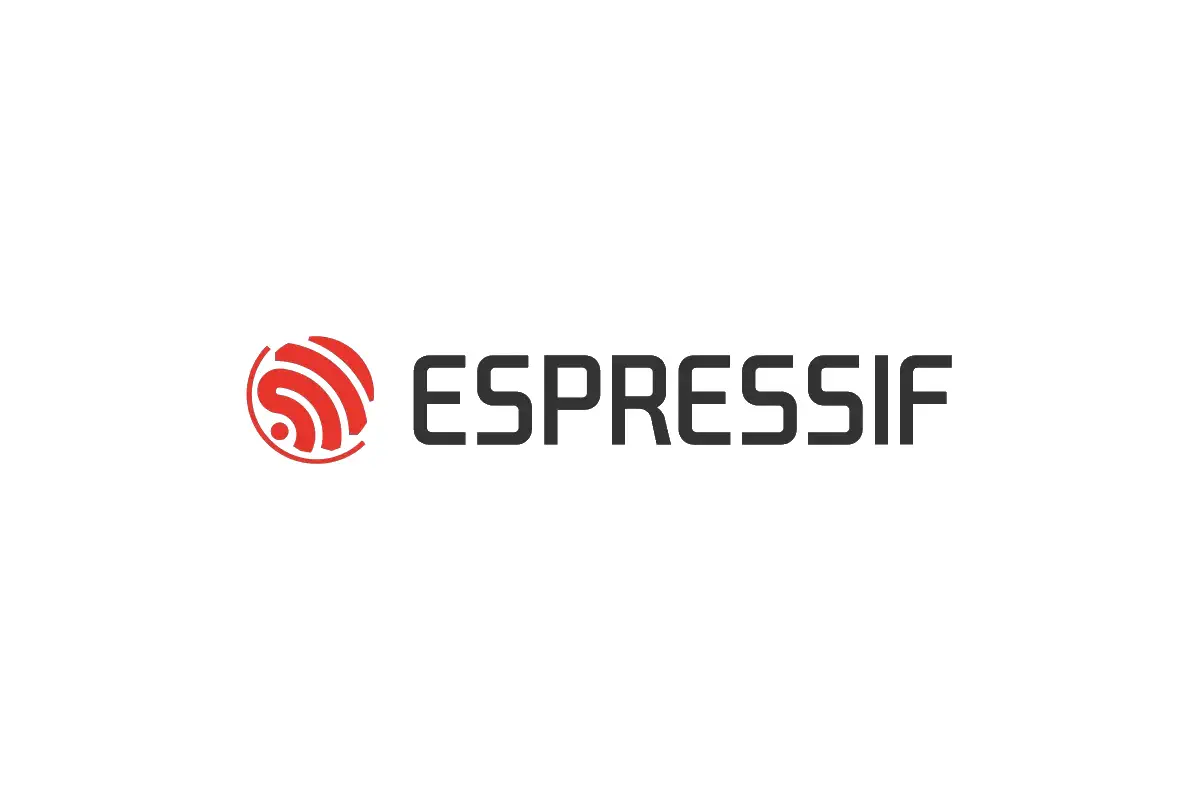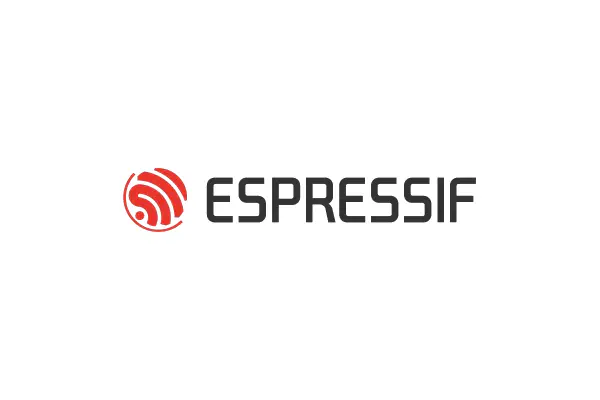Welcome to our March Newsletter
Our News. Our World Join Us!
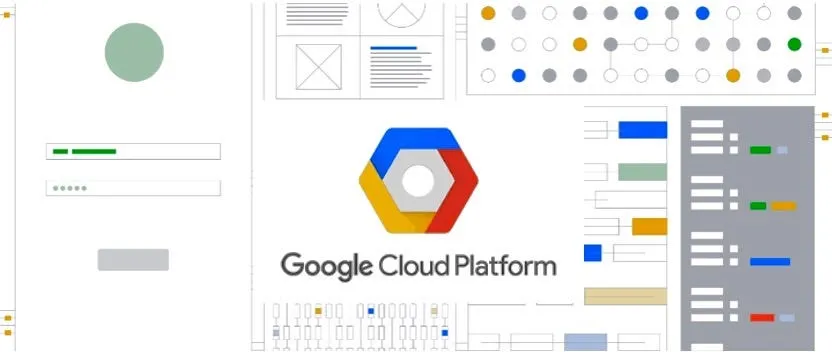
Hi everyone,
At the end of last month Google announced its partnership with Espressif Systems in a blogpost introducing the Google Cloud IoT Device SDK. This consists of libraries written in Embedded C that enable developers to securely connect, provision, and manage all of their devices with the Google Cloud IoT Core. On this occasion, Teo Swee Ann, the founder and CEO of Espressif Systems, said: “Our collaboration allows for the easy integration of two of our most widely-used products, ESP32 and ESP8266. We are committed to working with Google Cloud, supporting updates to the SDK and enabling our customers to easily make use of current and future designs with Cloud IoT Core.”
From a value perspective, the Google Cloud IoT Device SDK allows embedded engineers to rapidly prototype, profile, and test in a standard desktop environment before porting to an embedded target, which allows for shorter time to market. So, Espressif is excited to be an integral part of this ecosystem.
Espressif’s increasing market penetration is further evidenced by the growing number of companies that are looking for ESP32 specialists. After searching a number of overseas recruitment websites (e.g. Guru, Freelancer, Upwork, Monster, CareerBuilder, SimpleHired, LinkedIn, etc.), we found that ESP32 developers are now widely sought after! The latest example is derived from a London-based company with the evocative
name, “Tech Will Save Us”. They are looking for engineers with proven experience in embedded development with ESP32 / ESP-IDF. Compensation would depend on the successful candidate’s actual knowledge, but could range up to £500/day.
Other topics you can find in this month’s newsletter include:
- “Empathy Swarm”, an Espressif-sponsored project which examines how non-anthropomorphic robots can learn, but also instigate, feelings of empathy and compassion;
- Espressif’s energy-saving smart-lighting solution that is based on ESP-MESH;
- MoonBot, a do-it-yourself kit for tinkering with modern robotics and artificial intelligence projects, which has been based on Espressif’s ESP32-WROOM-32 module;
- An ESP32-based remote-controlled car, which enables video-streaming over Wi-Fi, while running on a small LiPo battery and being controlled accurately from any web browser.
Hope you enjoy reading this month’s newsletter. Keep sending us your messages and requests on Facebook, Twitter, LinkedIn, Instagram and YouTube. We respond to all of your messages as quickly as possible!
Best wishes, John Lee. Senior Customer Support Officer
“Empathy Swarm”: An Art-and-Science Project Sponsored by Espressif#
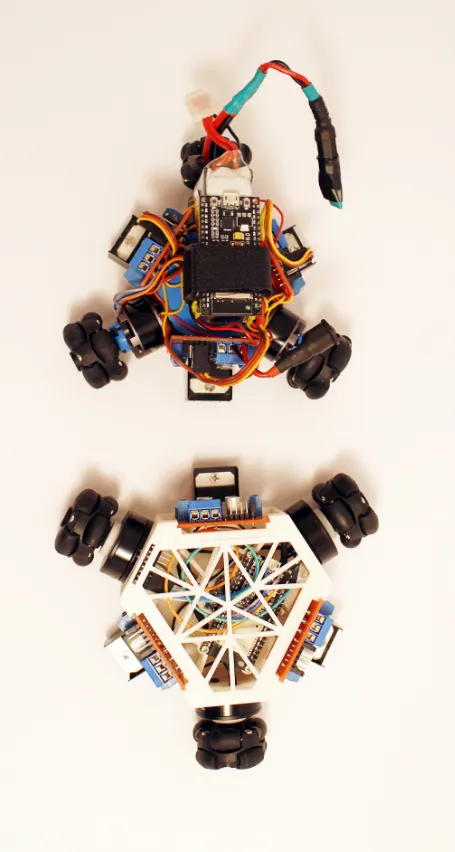
Espressif has sponsored a project that is on the verge between arts and sciences. It is named “Empathy Swarm” and it examines the ways in which non-anthropomorphic robots can learn, but also instigate, feelings of empathy and compassion. The people behind the project are Katrin Hochschuh and Adam Donovan. Espressif’s contribution has taken the form of a hardware sponsorship based on the ESP32-WROVER-B (IPEX) and the ESP32-PICO-D4 modules.
Energy-Efficient Lighting Solution with ESP Mesh#
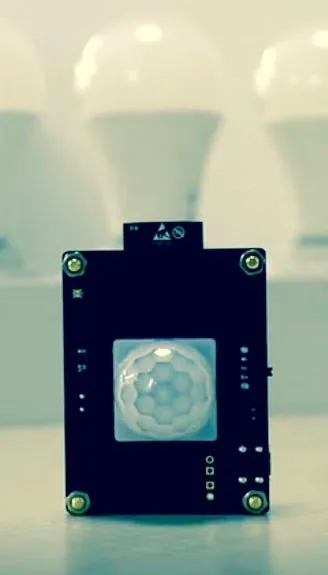
Have you ever wondered how wasteful it is to leave the office without turning the lights off or have only few employees working during the night and yet keep the lights on across the entire company? Likewise, is it not very inefficient to use big meeting rooms day and night without a system adjusting the lights to users’ actual needs? Automation is the key concept here and ESP Mesh is Espressif’s technology for energy-efficient lighting systems that respond automatically to users’ needs.
“MoonBot Kit” Based on ESP32-WROOM-32#
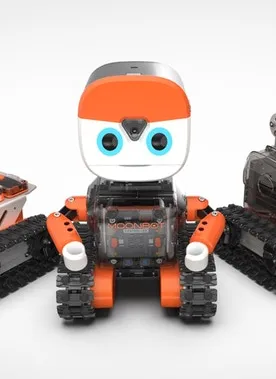
MoonBot is a do-it-yourself kit for tinkering with modern robotics and artificial intelligence projects. Its vision processor is Espressif’s ESP32-WROOM-32 module. Whether you are just getting started, or have worked with robots in the past, the MoonBot kit will help you create professional-looking robots with advanced autonomy.
ESP32-Powered FPV Car#
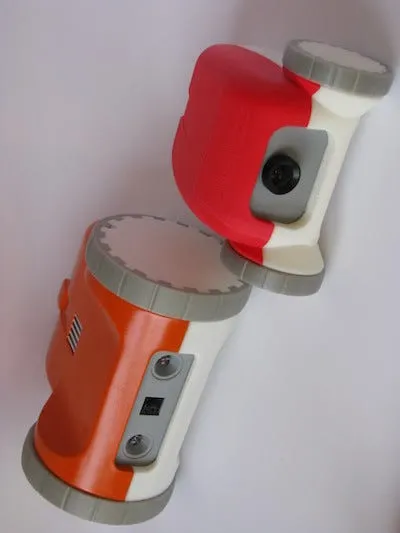
“Simplicity is the key to brilliance”, some people say, and it seems that the remote-controlled car made by the German engineer Maximilian Kern (also known as Max.K) is a concrete example of this principle. Despite the current trends of producing fairly complicated high-tech gadgets, there is plenty to to be said about simple ones, too, such as Maximilian’s adorable ESP32-driven bot.
Originally published at mailchi.mp.

